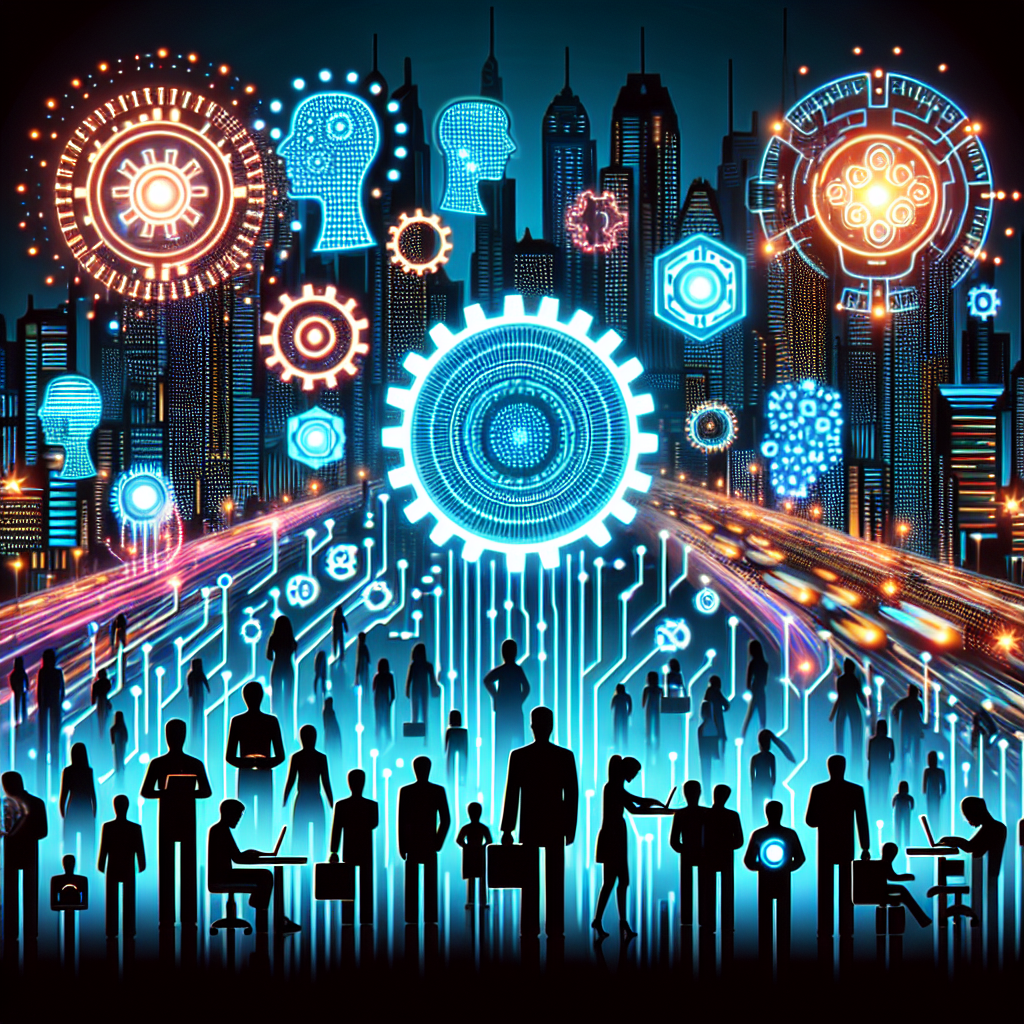The Future of Work: How AGI Will Impact Jobs and the Economy
Artificial General Intelligence (AGI) is a concept that has been discussed for decades, but recent advancements in machine learning and artificial intelligence have brought us closer than ever to achieving it. AGI refers to a machine that can perform any intellectual task that a human can do, and potentially even surpass human capabilities in some areas. As AGI becomes a reality, it is important to consider how it will impact jobs and the economy.
In this article, we will explore the potential implications of AGI on the workforce and the economy. We will discuss how AGI could automate many tasks currently performed by humans, leading to significant changes in the job market. We will also examine how these changes could affect the economy as a whole, including factors such as productivity, income inequality, and the distribution of wealth.
The Rise of AGI and Automation
One of the key ways in which AGI will impact the workforce is through automation. AGI has the potential to automate a wide range of tasks across various industries, from manufacturing and transportation to healthcare and finance. This could lead to the displacement of millions of workers who currently perform these tasks, as machines become more efficient and cost-effective than human labor.
While automation has been a concern for many years, AGI represents a significant leap forward in terms of the capabilities of machines. Unlike narrow AI systems, which are designed to perform specific tasks, AGI can learn and adapt to new situations, making it much more versatile and capable of performing a wide range of tasks. This means that a larger number of jobs could potentially be automated by AGI, including those that require complex decision-making and problem-solving skills.
The Impact on Jobs
The impact of AGI on jobs is likely to be significant, with some experts predicting that up to 50% of all jobs could be automated within the next few decades. This could lead to widespread job displacement, particularly in industries that rely heavily on routine tasks that can be easily automated. For example, jobs in manufacturing, customer service, and transportation are all at risk of being automated by AGI.
However, it is important to note that not all jobs will be affected equally by automation. Some jobs, such as those that require creativity, empathy, and social skills, are less likely to be automated by AGI. These types of jobs are often found in fields such as healthcare, education, and the arts, where human interaction and emotional intelligence are essential. As a result, workers in these industries may be better positioned to weather the changes brought about by AGI.
The Impact on the Economy
The impact of AGI on the economy is likely to be complex and multifaceted. On the one hand, automation has the potential to increase productivity and efficiency, leading to higher economic growth and improved living standards. By automating routine tasks, AGI could free up human workers to focus on more creative and strategic activities, leading to innovation and new job opportunities.
However, the benefits of automation may not be evenly distributed across society. As machines become more capable of performing a wide range of tasks, the demand for human labor in certain industries could decline, leading to job losses and income inequality. Workers who are displaced by automation may struggle to find new employment opportunities, particularly if they lack the skills and education needed to transition to new roles.
Furthermore, the rise of AGI could also lead to significant changes in the distribution of wealth. As machines become more productive and efficient, the owners of capital and technology are likely to benefit the most, while workers may see their wages stagnate or decline. This could exacerbate existing inequalities in society, leading to greater wealth concentration and social unrest.
FAQs
Q: Will AGI lead to mass unemployment?
A: While AGI has the potential to automate a large number of jobs, it is unlikely to lead to mass unemployment. As new technologies emerge, new job opportunities are also created. Workers who are displaced by automation may need to retrain and acquire new skills in order to transition to new roles.
Q: How can workers prepare for the rise of AGI?
A: Workers can prepare for the rise of AGI by investing in education and training. Developing skills in areas such as critical thinking, problem-solving, and emotional intelligence can help workers remain competitive in a rapidly changing job market. Lifelong learning and adaptability will be key to success in the age of AGI.
Q: What role do policymakers play in shaping the impact of AGI on the economy?
A: Policymakers have a crucial role to play in shaping the impact of AGI on the economy. They can implement policies that support workers who are displaced by automation, such as providing retraining programs and social safety nets. Policymakers can also regulate the use of AGI to ensure that it is used responsibly and ethically.
Q: Will AGI lead to a utopian or dystopian future?
A: The impact of AGI on society will depend on how it is developed and deployed. If AGI is used responsibly and ethically, it has the potential to improve living standards and create new opportunities for human workers. However, if AGI is developed without proper safeguards, it could lead to widespread job displacement and social unrest. It is up to policymakers, businesses, and society as a whole to ensure that AGI is harnessed for the benefit of all.
In conclusion, the rise of AGI has the potential to revolutionize the way we work and live. While automation may lead to job displacement and income inequality, it also presents opportunities for innovation and growth. By preparing for the changes brought about by AGI, workers and policymakers can help ensure a more equitable and prosperous future for all.

